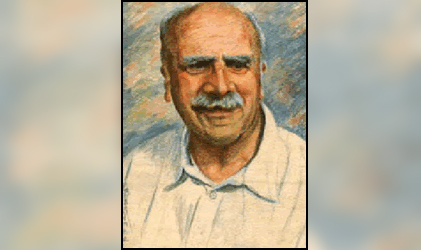- DSpace Home
- →
- J B S Haldane Collection
J B S Haldane Collection
Browse by

John Burdon Sanderson Haldane, FRS, was a British-born Indian scientist known for his work in the study of physiology, genetics, evolutionary biology, and in mathematics, where he made innovative contributions to the fields of statistics and biostatistics. Haldane wrote on varied subjects. He continued to write till he died in 1964. He wrote twenty-four books (including science fiction and stories for children) more than 400 scientific research papers and innumerable popular articles. On his writings Haldane wrote: “Besides scientific books I have written a number of popular works, including a book on children’s stories. I consider that a scientist, if he can do, should help to render science intelligible to ordinary people and have done my best to popularise it”. Some of his important works are: Daedalus; or Science and the Future (1924); Callinicus: A defense of Chemical warfare (1925); The Last Judgment (1927); Animal Biology (1927 with J.S. Huxley); Possible Worlds and other Essays (1927); The Origin of Life in Rationalist Annual (1929 pp. 3-10); Science & Ethics (1928); Enzymes (1930); The Inequality of Man and Other Essay (1932), Science and Human Life (1933); Fact and Faith (1934); The Causes of Evolution (1933). Science and the Supernatural (1935 -–with A Lunn); My Friend: Mr. Leakey (1937 – for children); The Marxist Philosophy and the Sciences (1938); Heredity and Politics (1938); Science and You (1939); Science and Everyday Life (1940); Preface and Notes to Dialectics of Nature (F. Engels, translated and edited by C. Dutta, 1940); Science in Peace and War (1940); New Paths in Genetics (1941); Science Advances (1947); What is Life (1947) For his outstanding contribution Haldane received many recognitions. Haldane was elected a Fellow of the Royal Society in 1932. The Royal Society awarded him its Darwin Medal in 1953" in recognition of his initiation of the modern phase of study of the evolution of living population”. The French Government gave him the Legion of Honour in 1937 and the Academia Nazionale dei Lincei gave him the Feltrinelli Prize (1961). The other awards he received were: Weldon Memorial Prize from Oxford University; the Darwin Wallace Medal of the Linnean Society; the Huxley Memorial Medal of the Anthropological Institute and Kimbler Genetics Award of the US National Academy of Sciences. He was President of the Genetical Society (1932-36).<br> He died on December 1, 1964. As per his will his body was sent to the Rangaraya Medical College, Kakinada. “My body has been used for both purposes during my lifetime”, Haldane wrote in his will, “and after my death, whether I continue to exist or not, I shall have no further use for it, and desire that it shall be used by others. Its refrigeration, if this is possible, should be a first charge on my estate”.
Collections in this community
Recent Submissions
-
(Indian Statistical Institute, Kolkata, 1992)
-
(Lindsay drummond, 1949)
-
(Lawrence & Wishart, 1940)
-
(Penguin books, 1939)
-
(George allen & Unwin, 1942)
-
(Penguin books, 1932)
-
(George allen & Unwin, 1941)
-
(Longmans, 1934)
-
(George allen & Unwin, 1954)
-
(Chatto and Windus, 1946)
-
(1954)
-
(1948)
-
(1951)
-
(1959)
-
(1948)
-
(Indian Statistical Institute, Kolkata, 1992)
-
(Lindsay drummond, 1949)
-
(Lawrence & Wishart, 1940)
-
(Penguin books, 1939)
-
(George allen & Unwin, 1942)
-
(Penguin books, 1932)
-
(George allen & Unwin, 1941)
-
(Longmans, 1934)
-
(George allen & Unwin, 1954)
-
(Chatto and Windus, 1946)
-
(1954)
-
(1948)
-
(1951)
-
(1959)
-
(1948)